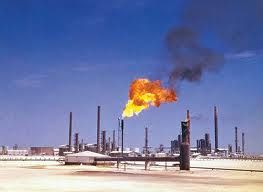
Area experts say that the decision to release oil reserves could send area gas prices, which al¬ready have dropped 40 cents since May 5, plum¬meting as much as another 60 cents -- or it could do nothing at all.
While their opinions differ on the amount of the drop at the pump, they agree that ultimately it will have little economic impact.
President Barack Obama and the Interna¬tional Energy Agency announced Thursday they would release a combined 60 million barrels of oil from their reserves in the coming month. Some experts hope the move will supply the push that will send already dropping oil prices plunging further.
How much will gas come down?
Clay Ingram, AAA Alabama spokesman, said he believes oil prices already are artifi¬cially inflated "quite a bit," and that even be¬fore Obama's announcement "there was room for prices to drop significantly."
"Now, having the room to do it and having it actually happen are two entirely different things," he said. "But maybe President Oba¬ma's decision will help trigger that and cut into that cushion that we have."
While he said it was impossible to predict how much releasing oil from the reserves could cause prices to drop at the pump, he said it could be anywhere from 10 cents to 60 cents a gallon.
That is a little more than is predicted by John Norris, managing director of Oak¬worth Capital Bank in Bir¬mingham and a MontgomeryAdvertiser financial colum¬nist.
"Of course you can't really have any idea exactly how much this might cause it to drop, but I'd put the high-end estimate at as much as 50 cents and the low end would be 5 cents or 10 cents," he said.
Although he wasn't sure how much it would drop, Norris said he was sure about how much it wouldn't.
"It's not going to create a major drop to like $2 a gal¬lon," he said. "That's just not going to happen."
Ingram agreed, saying while he would like to be¬lieve releasing the reserves would cause a major drop, he doesn't believe it will.
But both Ingram and Nor¬ris were more optimistic than Auburn Montgomery economist KeivanDeravi. He believes releasing the oil reserves will have no imme¬diate impact and might have no impact at all.
In the short term, he said, there will be no effect be¬cause there is a considerable lag between the time that oil is purchased and the time consumers buy it at a gas station.
"There is a shipment lag, and a refinement lag and a delivery lag," he said. "I be¬lieve there is something like a six-month lag from the time the oil is in the tanker to the time it gets to the pump. The prices we are seeing at the pumps now are probably based on oil prices and speculation that took place three or four months ago."
Supply not the issue
The major reason most ex¬perts don't expect the move to have a major impact is be¬cause they say supply is not the issue.
Entec general manager Jim White said the price of gasoline isn't just determined by the supply of gasoline anymore. He said now you can see the price of a barrel of gas increase because of things such as Greece's eco¬nomic problems.
Ingram agreed with White's observation.
"Ten years ago, a refinery fire might not have affected the price of oil at all," In¬gram said. "Now, a refinery fire can drive up the cost of a barrel of oil $3 or $4 in just a few hours. You can have things like this become a cy¬cle that just pushes prices higher and higher without a legitimate reason for any of it."
All of the experts agree that there is a reason for the cycle.
"Supply is not the prob¬lem," Ingram said. "Specula¬tors are the problem. The price of oil is inflated, and it is speculators who have been responsible for driving it up."
Deravi said speculators buy oil when it is cheap and then simply hold on to it until there is some type of crisis, or perceived crisis, and they can sell it at a higher price.
"What these speculators are doing is not illegal, not immoral. They have just found a flaw in the market that they are exploiting," he said.
Long-term effects
Experts also agreed peo¬ple should not expect drop¬ping fuel prices to fuel an economic recovery.
Norris said it's clear the savings won't add up to a ma¬jor recovery.
"Let's say this brings oil prices at the pump down 50 cents, and it probably won't. But even if it did, and you buy 15 gallons of gas a week, that means you only save about $7.50," he said. "That's not the sort of money that's going to give American con¬sumers the income to go out and buy major purchases.
"The reason American consumers aren't spending money is because inflation-adjusted incomes aren't growing. American incomes just aren't keeping up. Peo¬ple may enjoy saving an ex¬tra 25 cents, or 50 cents, at the pump, but it won't change that."
Deravi and Norris said it is clear that in releasing the reserves the United States and the other countries were attempting to create an eco¬nomic situation that might convince speculators to get out of the oil market.
While both men said they thought this might work in the short term, neither thought it would have long-term success.
As long as there is profit to be made and a market to exploit people will do it, De¬ravi said.
"Long range it will not work," he said, adding that governments would have to create more financial re¬straints to discourage such speculation.
Source: Montgomery Advertiser
We use cookies to improve your experience. By continuing to use our site, you accept our Cookies, Privacy Policy,Terms and Conditions. Close X